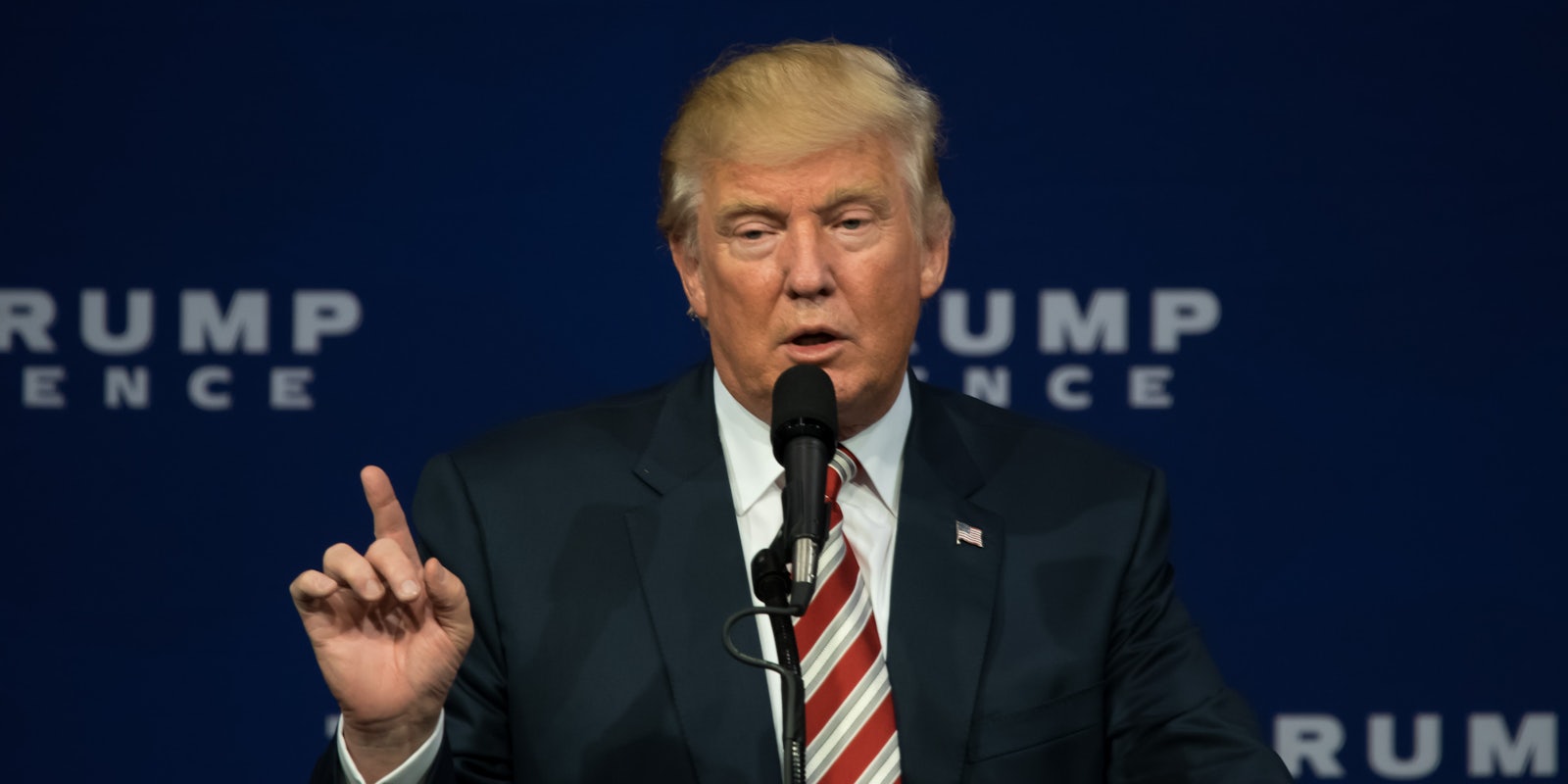The U.S. on Thursday night launched an aerial attack on Syria in response to the chemical attack waged by dictator Bashar al-Assad against his own people that killed dozens. The move represents a serious about-face for President Donald Trump, who now reportedly wants to oust al-Assad from power, despite campaigning on an “America first” platform and vowing to avoid complicated international conflict. His travel ban also blocked refugees from Syria, which has been locked in a civil war since March 2011.
In remarks after the strike, Trump called al-Assad’s attack “reprehensible” and “heinous.” “No child of God should ever suffer such horror,” he said.
Many on Twitter were skeptical that Trump’s actions were some sort of humanitarian response. Instead, some users, using the hashtag #WagTheDog, believe that the president is trying to distract the public from his other controversies.
In essence, since Trump is under investigation for possible ties to Russia, some believe the attack might have been set up so Trump can appear independent from Russia President Vladimir Putin, one of the strongest allies of al-Assad and Syria. And with the report that the U.S. gave Russia a heads-up before the attack, some believe the emotional reasoning behind it was a farce.
I woke thinking of this #film. #trumpadministration #WagTheDog pic.twitter.com/VW4go3s0es
— Greg Allen (@GregoryGAllen) April 7, 2017
The term “wag the dog” was used extensively in the 1997 film of the same name—though the term predates the movie—and it’s an idiom for someone to divert the public’s attention from something of the utmost importance by making them focus on something that’s less important. In fact, one of Urban Dictionary’s definitions for the term is, “To start a war or military operation to divert negative political attention away from yourself. Based on the movie of the same name, where the president fabricates a fake war to take political pressure away from a scandal.”
https://twitter.com/CrustyHuska/status/850320612321001472
Normally administrations #wagthedog behind closed doors. This one actually brags about it to the press, in talking points. https://t.co/tDgvcb576e
— (((Evan Shapiro))) (@eshap) April 7, 2017
Completely. The WH backchannels to Russia appear to be YUUUGE. #trumprussia must be investigated. We got #wagthedog rules in play now. https://t.co/akPpphxmPf
— Dr Lola Polticka (@lolapoliticka) April 7, 2017
Some on Twitter stated the whole military intervention was staged just to make look Trump look tough, even though Russia has condemned the U.S. attack.
Fake military response? #wagthedog https://t.co/I3O2jyhVQ5
— PolitiScoop (@PolitiScoop) April 7, 2017
https://twitter.com/DLL1209/status/850309716299460608
In a total #WagTheDog move @realdonaldtrump alerts Putin, who alerts Hassad, so we can launch missiles for show to distract from #Russiagate
— Rhuta Bhayga (@RhutaBhayga) April 7, 2017
https://twitter.com/Catalyst75/status/850321906901417984
With ABC News reporting Friday morning that Syrian military officials “appeared to anticipate Thursday’s night raid”—possibly because Russia knew the attack was coming and passed on the intelligence to its ally—it’s likely the Twitter hashtag will continue to be utilized.


